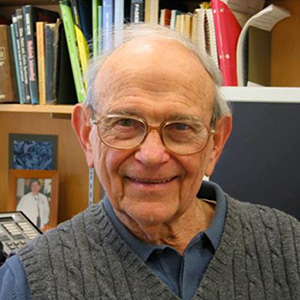Herman Eisen, MD, head of the Department of Molecular Microbiology at Washington University School of Medicine in St. Louis from 1961-73, died Nov. 2, 2014. He was 96.

Eisen earned his medical degree from New York University in 1943 and was a member of its faculty from 1950-55. He came to Washington University in 1955 as a professor of medicine in the Division of Dermatology.
“Herman Eisen’s pivotal contributions include the discovery of affinity maturation, or the ability of the immune system to adjust the production and quality of its antibodies over time to better identify and neutralize invaders,” said Emil Unanue, MD, the Paul and Ellen Lacy Professor of Pathology and Immunology. “He was the last of the great immunochemists, and his substantial scientific output was undiminished for more than six decades.”
Eisen, who reportedly had finished a paper on T cells the day he died, authored the immunology section of an influential 1970s textbook on microbiology for medical students. He had retired in 1989 from Massachusetts Institute of Technology (MIT), but as a professor emeritus of biology, maintained an active lab at the university.
As head of the Department of Molecular Microbiology at Washington University, Eisen oversaw the recruitment of several new faculty members and supervised the department’s move to the McDonnell Medical Sciences Building in 1970.
Eisen was a member of the Institute of Medicine of the National Academies, a member of the National Academy of Sciences and a fellow of the American Academy of Arts and Sciences.
Among his survivors is his wife, Natalie.
Memorial donations may be made to the Marine Biological Laboratory (connect.mbl.edu/donate) in Woods Hole, Mass.